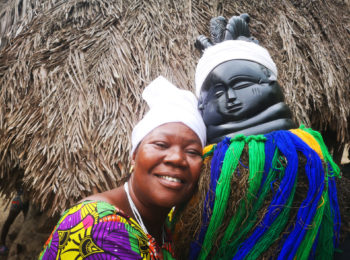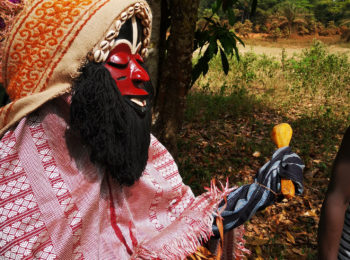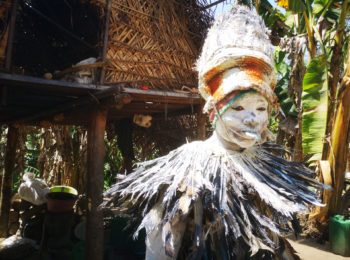Day 2 - Conakry - Kindia
We spend the morning exploring the capital and then drive to the village of Kindia, en route to the Fouta Djalon highlands. This evening we hope to see a performance of the traditional Baga Nimba masks. Overnight Hotel Masabi or similar. (BLD)
Day 3 - Dalaba
Drive to the small town of Dalaba, with its interesting ‘casa a palabra’, a finely decorated building used for local chiefs. We also visit the villa of Guinea’s first president, Sekou Toure, among other sights. Overnight Hotel Tinka or similar. (BLD)
Day 5 - Faranah
Today we drive to the town of Faranah, in the region inhabited by the Malinke people. The Malinke are descendants of the ancient empire of Mali and we visit a community of ‘griots’ – traditional musicians and story tellers who play an important part in conserving the traditions of West Africa. We learn about their history and customs, and witness a traditional griot performance. Overnight Hotel Niger or similar. (BLD)
Day 6 - Kissidougou
We visit a traditional Malinke village where we can meet the chief, then later head into the forest with the Dozo, known as warriors, hunters and healers. The Dozo are renowned for their magical powers and wear traditional costumes and amulets to protect themselves from enemies. This afternoon continue to Kissidougou for the night. Overnight Hotel Rama or similar. (BLD)
Day 7 - Macenta
This region is the home of the Kissi people, who are known for worshipping stone gods called Pomo, found in the forests. In Kissidougou we visit the museum which displays cultural artefacts from the region. From here we continue on bad roads to reach Macenta where we can see the initiation rituals of the Toma people. Overnight Hotel Macenta or similar. (BLD)
Days 8-9 - Nzerekore - Nimba
Explore a lush region of thick forests and remote villages. We may see mask dances while here, including one of the ‘bird men’, dressed in feathers and with their faces painted white with kaolin. This is a secret society, and its members are believed to have powers that make them invisible. We also see the impressive bridges made of living vines, believed to be built by spirits during the course of just one night. Cross into Liberia and drive to the town of Nimba. Overnight Residence Diani (Day 8) and Nimba Eco-Lodge (Day 9) or similar.
Day 12 - Bo
Cross the border with Sierra Leone and head towards its diamond producing region. Continue to Bo for the night, where we spend time learning about the process of diamond mining, as we join some villagers who show us their craft, as well as meeting diamond traders for an insight into a side of the business few get to see. Overnight Hotel Dohas or similar. (BLD)
Days 13-14 - Banana Islands
In the morning of Day 13 we see a rare performance of the female Bundo masks – normally mask societies are for men only. Continue from here to the archipelago of the Banana Islands, with its stunning beaches and fishing villages. We explore the island by boat to discover tiny creeks and Krio fishing villages. Overnight Bafa Lodge (tented camp) or similar. (BLD)
Day 15 - Tacugama - Freetown
Return to the mainland and head to the stunning beaches of the Freetown peninsula, before continuing to Tacugama Chimpanzee Sanctuary to see how local efforts are being made to rescue and rehabilitate these impressive primates. Continue to Freetown for the night. Overnight Swiss Hotel or similar. (BLD)
Please note that we sell this trip in conjunction with our local partner and therefore you should expect people of different nationalities and a maximum group size of 16 on this tour.
Very few hotels in these countries have twin rooms. If you are intending to share a twin room with a friend, please check with us to see where this can be accommodated.
Please note: This is a pioneering trip and so you must be prepared for flexibility and changes to the itinerary if necessary. We most definitely do not recommend this trip if you like rigid plans, 4 star hotels, good roads and well defined ‘tourist sites’ – this is a very adventurous trip through a remote part of the continent, where infrastructure is not great, things change frequently and you can expect a certain amount of discomfort at times. However the rewards more than balance these out – the chance to travel through lands that rarely see western visitors, experience the truly authentic and go to places that few have gone before, in one of the most interesting corners of Africa.
What's included?
What's not included?
Visas
Most travellers will require a visa to enter Guinea and Liberia which must be obtained before travel. Most travellers will require a visa to enter Liberia, which must be obtained before travel. It is not clear whether the e-visa is accepted at land borders and so we strongly recommend that you obtain a visa from the embassy instead. We may be able to assist with this for you, if needed. You may need an invitation letter in order to obtain these, depending on the requirements of the embassy that you apply at – we can provide this for you. The visa for Sierra Leone can be obtained at the border at a cost of US £80. Visa regulations can change however and so we recommend that you contact your nearest embassy for the most up to date information.
Health and vaccinations
We are not medically qualified and so we recommend that you speak to your doctor or nearest health professional for advice concerning recommended vaccinations. For more advice on vaccinations you can also visit https://travelhealthpro.org.uk/countries.
A Yellow Fever vaccination certificate is required for entry to both countries and you must bring this with you.
If you have any physical limitations that might impact your ability to participate in the planned tour activities, it’s essential that you make us aware as soon as possible so that we can discuss this with you.
Insurance
It is a condition of joining our tours that you have suitable travel insurance in place, and we cannot accept travellers without insurance. All policies differ in terms of what they will cover, but as a minimum you need medical and health cover, which will cover you for the whole time that you are away. Most policies will also include cancellation cover, which will cover you if an unforeseen circumstance obliges you to cancel your trip. We recommend that you obtain your insurance as soon as you book your trip.
Please note that government travel warnings often affect the validity of your travel insurance, and you should check this with your insurance company.
Money
The local currency in Sierra Leone is the leone, , in Liberia it is the Liberian dollar, and in Guinea it is the Guinean franc. It is best to bring Euros for exchange purposes as neither currency is readily obtainable outside of the region.
It’s not difficult to change money either at banks or the hotels and your guide can assist with this. There are also an increasing number of ATMs in larger towns. However these are not always reliable and so it is best to think of them as a back up rather than a main means of obtaining money.
Credit cards are accepted in larger hotels and better restaurants (usually in Conakry and Freetown only) but are not commonly accepted elsewhere.
When to go
The region experiences two distinct seasons. The dry season runs from October until April, and the wet season from May until September – these can change by a few weeks either side depending on climate variations. Although most people choose to visit in the dry season, it’s also feasible to visit in the wet season – the rains, although heavy, do not last the whole day and usually take the form of short sharp bursts. Some roads can be difficult during the wet season though.
Local conditions
When travelling to some of the destinations we offer you need to bear in mind that things won’t always work here as we’re used to them working at home. Travelling in underdeveloped and untouristed destinations requires both patience and a sense of humour. There may be problems with infrastructure, attitudes may be different, and maintenance may not be as high a standard as we would always like, but this is very much part and parcel of travelling in such a place.
In addition, roads throughout the parts of Africa that we visit are often poorly maintained (if at all!) and distances between key sites of interest can be long. Travelling in Africa can be tiring, hot and dusty at times, and inevitably it can be frustrating. While there are some issues that we are able to solve, others are intrinsic to the countries that we travel through, and you should be aware that many of the countries that we operate in cannot be compared to others on the continent that have better infrastructure – for example the popular tourist destinations of east and southern Africa. Although travelling in these countries can at times be an ‘unpolished’ experience, this is all part of the adventure. We aim to resolve any issues as quickly as possible, and putting up with a pothole (or ten) is undeniably worth it for the amazing sights and cultural experiences you will encounter along the way.
Please note that none of these countries are particularly used to tourism and what may seem like common sense and good practice elsewhere may not even be considered here. Your guide will manage all situations as best they can, but it’s important to be realistic about the countries that you are visiting – we do not particularly recommend either for first time visitors to Africa.
Travel advice
We keep a very close eye on the travel advice issued by the UK Foreign and Commonwealth Office so that we can keep you up to date with any warnings. At the time of writing the FCO does not advise against travel to any parts of Guinea, Liberia or Sierra Leone.
This relates to advice from the British government – other nationalities need to check the stance of their own governments.
Please note that the information contained above is highly susceptible to change, and while we endeavour to keep up to date we recommend that you use this as a guide only. Should you have any questions, please don’t hesitate to contact us.
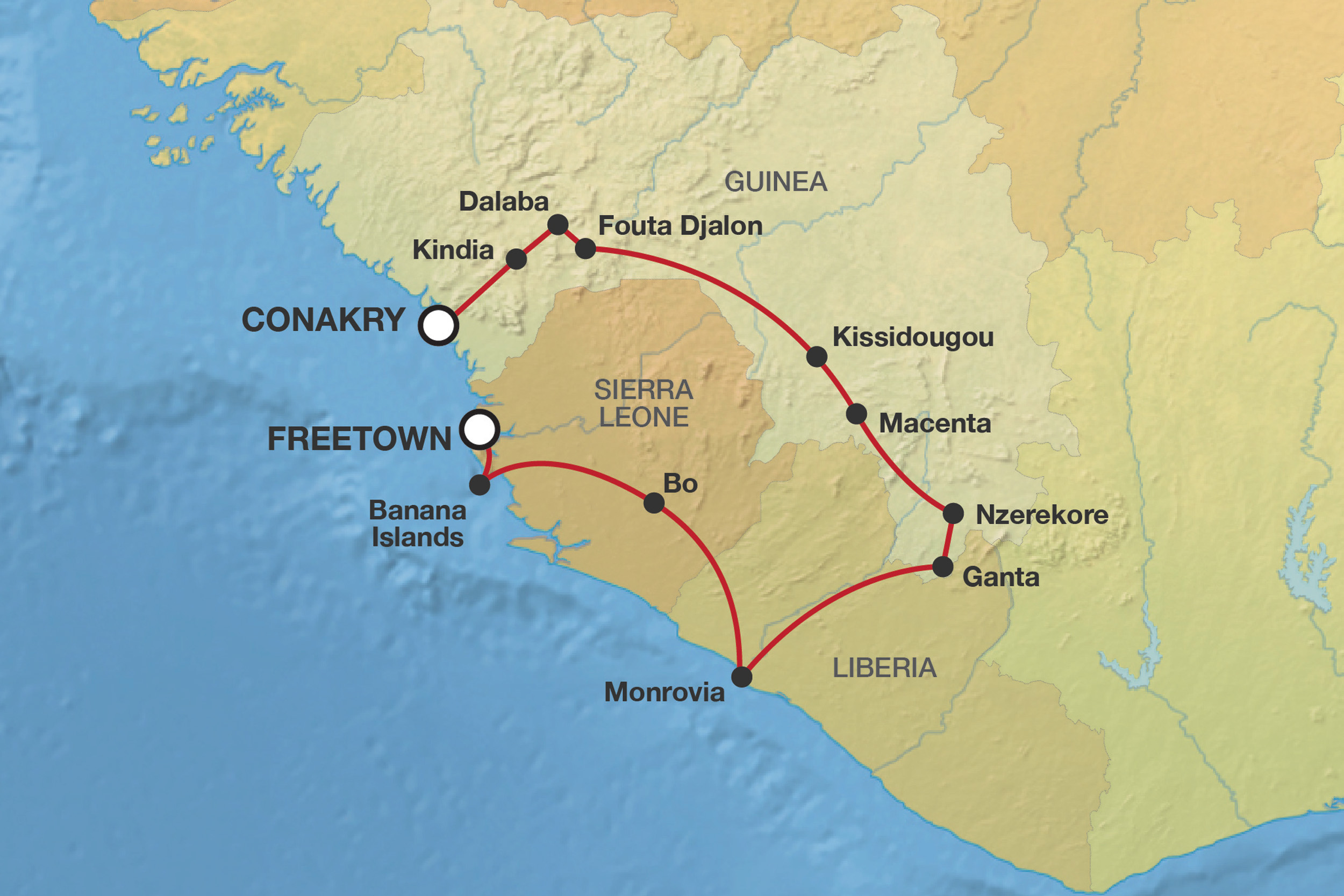
You may also like…
- Prices from£3,599EXPLOREBenin, Ghana, TogoGold and Magic
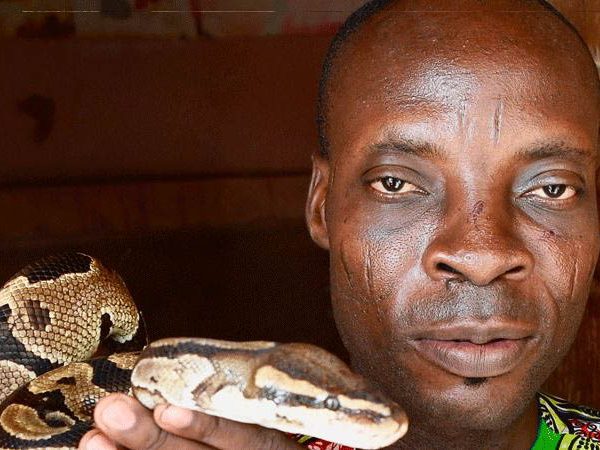
Gold and Magic
- Prices from£4,049EXPLOREGuinea-Bissau, SenegalWest Africa Explorer
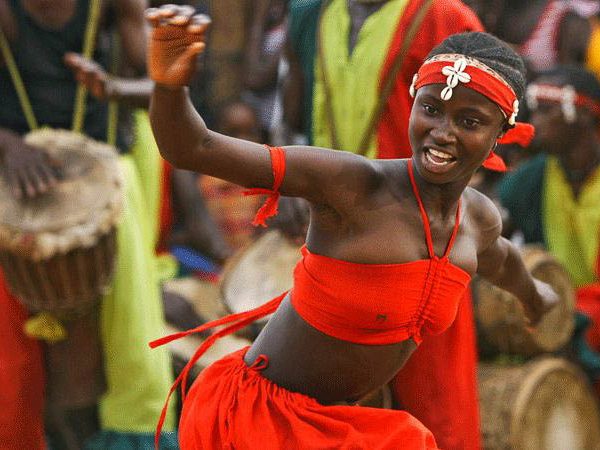
West Africa Explorer
- Prices from£9,099EXPLOREGuinea-Bissau, Guinea, Sierra Leone, Liberia, Ivory Coast, Ghana, Togo, BeninBissau to Cotonou – Heart of West Africa
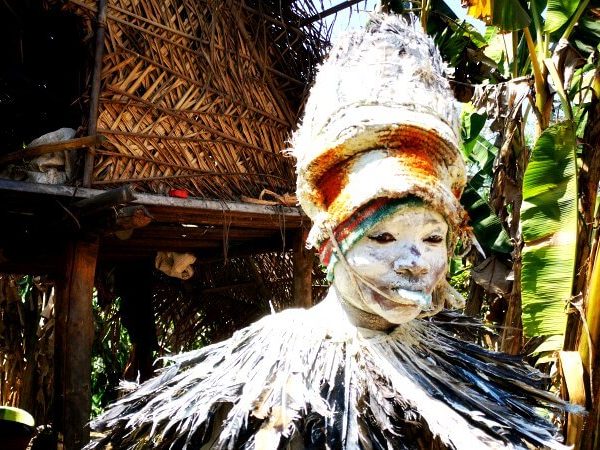
Bissau to Cotonou – Heart of West Africa











